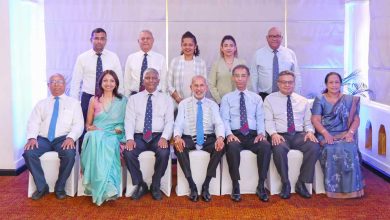THE NATIONAL PEACE COUNCIL
Respect for the Constitution and the Rule of Law must prevail in Sri Lanka
The dismissal of Prime Minister Ranil Wickremesinghe following the withdrawal of the SLFP headed by President Maithripala Sirisena from the government alliance has plunged the country into a political crisis. The president has appointed former president Mahinda Rajapaksa as the new prime minister. The changing of governments and leaders is part and parcel of democracy. But due process needs to be followed, the constitution must not be not violated and the Rule of Law must prevail when such changes take place. Prime Minister Wickremesinghe has contested his dismissal, and the appointment of a new Prime Minister, on the grounds that it does not conform to the 19th Amendment to the constitution. The legality of the Prime Minister’s dismissal needs to be resolved by the Supreme Court.
Despite violent conflicts in the past, Sri Lanka can take pride in the fact that transfer of power to successive administrations was achieved through democratic electoral processes. Parliamentary democracy is a public process not a secret enterprise. The most urgent need is for Parliament to meet and find ways and means to resolve the crisis. Therefore the National Peace Council is not in agreement with the President’s action in proroguing Parliament until November 16. We call on the President and Speaker to immediately convene Parliament to enable the person with majority support to be declared the Prime Minister.
Even as the political crisis continues the National Peace Council notes the need to maintain discipline in institutions to prevent individuals taking laws into their own hands. Sri Lanka can ill afford unruly takeover of media and other government institutions that can lead to violence between competing political interests. Law enforcement officials need to ensure that the Rule of Law is maintained at all costs despite their own political leanings.
It is particularly distressing to us that the steady progress that the country was making in the area of post-war reconciliation could be jeopardized as a result of the political instability that has now besets the polity. In the course of this year the government alliance set up the Office of Missing Persons, returned military occupied land to the civilian population in the north and east, passed legislation to establish an Office for Reparations and the cabinet of ministers approved draft legislation for a Truth Commission. We strongly affirm that these are achievements that need to be built upon and not reversed.





